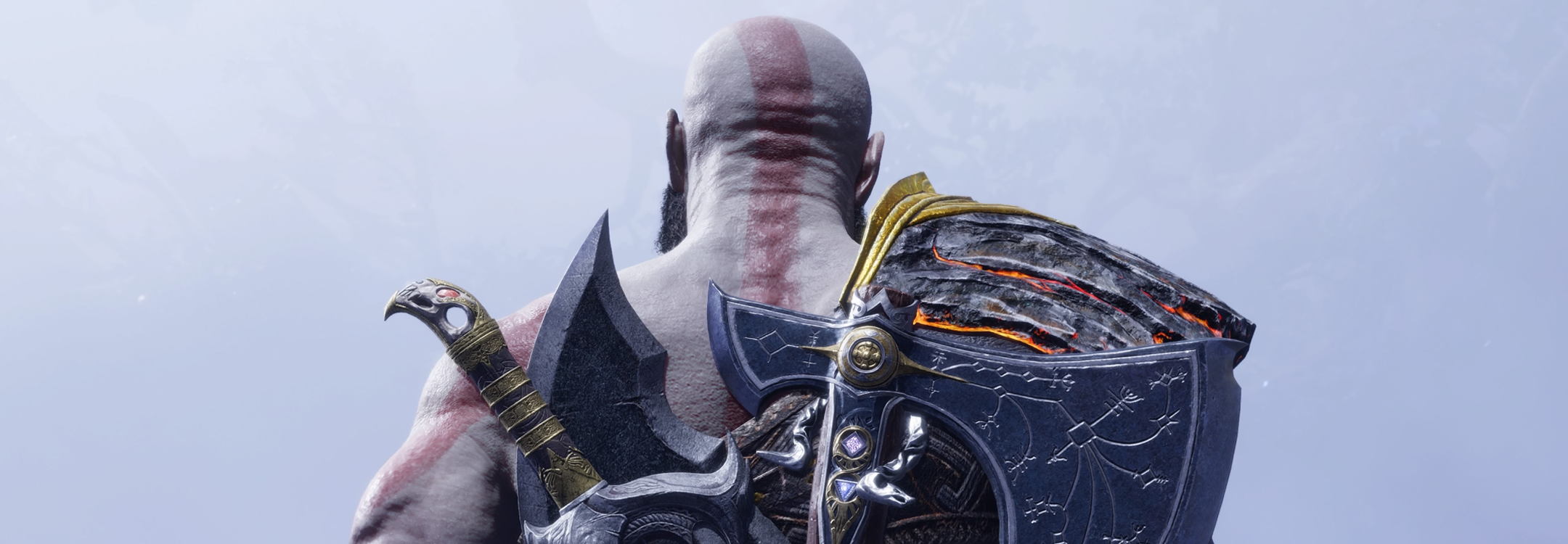

NΩRSE ERA

Centuries, or perhaps, a thousand of years later, Kratos finds himself living in the land of the mortals - Midgard. Hiding his godhood from the world, from the local Gods, from his own son. That’s right, Kratos moved on from everything that happened in Ancient Greece and found a new lover, a new wife - Faye, as they ended up having a child together. The kid’s name was Atreus, but what they later found out that this little thing was actually born as the God of Mischief himself, with his given name being Loki. The boy was clueless of his godhood, because Kratos had not told him any of it.
And worse, Faye (who was in fact, revealed to be none other than Laufey the Just), had passed away, leading the two alone to deal with their demons. Her last wish was that her ashes would be spread from the highest point in the world - which was initially believed to be in Midgard, but turned out to be all the way in Jötunheim, which lead Kratos and Atreus on a journey to reach the lost realm and discover many new things about themselves and Laufey. That is when Kratos had revealed to Atreus about their nature as Gods, for the boy had fallen ill due to the conflict of the mind because of his lack of awareness.
The journey led Kratos on a path of inner growth, which would only further continue once it was over, and that the events happening - primarily, the death of Baldur Odinson, the cycle of children killing their parents being over - had started Fimbulwinter, and there were many more perils Kratos and Atreus were yet to face. Yet they found themselves a great ally in the face of Mimir, who became like a brother to Kratos, and is one of the main reasons why Kratos had finally started to slowly let go of his past and started trusting people again.
(I hope this is a point where some of you realise I’m not gonna write the ENTIRE plot of Norse era here. There’s a LOT of it, too much to be able to put in a single little website dedicated to a man with a TON of lore and development. Protagonist of a massive series moment.)
While Norse era Kratos is deemed to be a disappointing progression of the character by people who really shouldn’t even have access to internet let alone have an opinion (i’m looking at you toxic alpha males who missed the entire point of the series), to me it is a natural conclusion to such an eventful, driven series, and Kratos’s character. As he finally gets closure for most of his trauma and issues.
While Greek era is a personification of toxic masculinity (or what such masculinity wishes to be), Norse era depicts a man that is a representation of healthy masculinity, and a man to look up to. A man who shows us, those who believed themselves to be unloved and unlovable, destroyed, betrayed, traumatized and lost - especially men who never had any safe space to open up about their feelings and trauma - that there is a light in the end of the tunnel, that there is someone who eventually is going to care for us. That it is worth to open our heart to them, that it is worth it all in the end and that we can still be loved and understood and not lose our status as a man in the process. That even tough, massive men like Kratos can still feel depressed, lost, sad and desperate.
To me, Norse era Kratos represents hope, which is what his monologue at the end of Valhalla DLC shows the best. Even Kratos himself believes that no matter what, there will always be hope, there will always be hope that he will not become again like the destructive maniac he used to be. That he is better now, that even if he loses it all, he will still stand tall and not succumb to his own nightmares again. And that even if he does, he still will be the man he is now - the man who overcame all odds, survived the worst both mentally and physically, and will keep fighting until the end to be better.
“You feel their pain because that is who you are. And you must never sacrifice that. Never. Not for anyone. I was wrong, Atreus. I was wrong. Open your heart. Open your heart to their suffering.”
Time until GoW Ragnarok PC Port